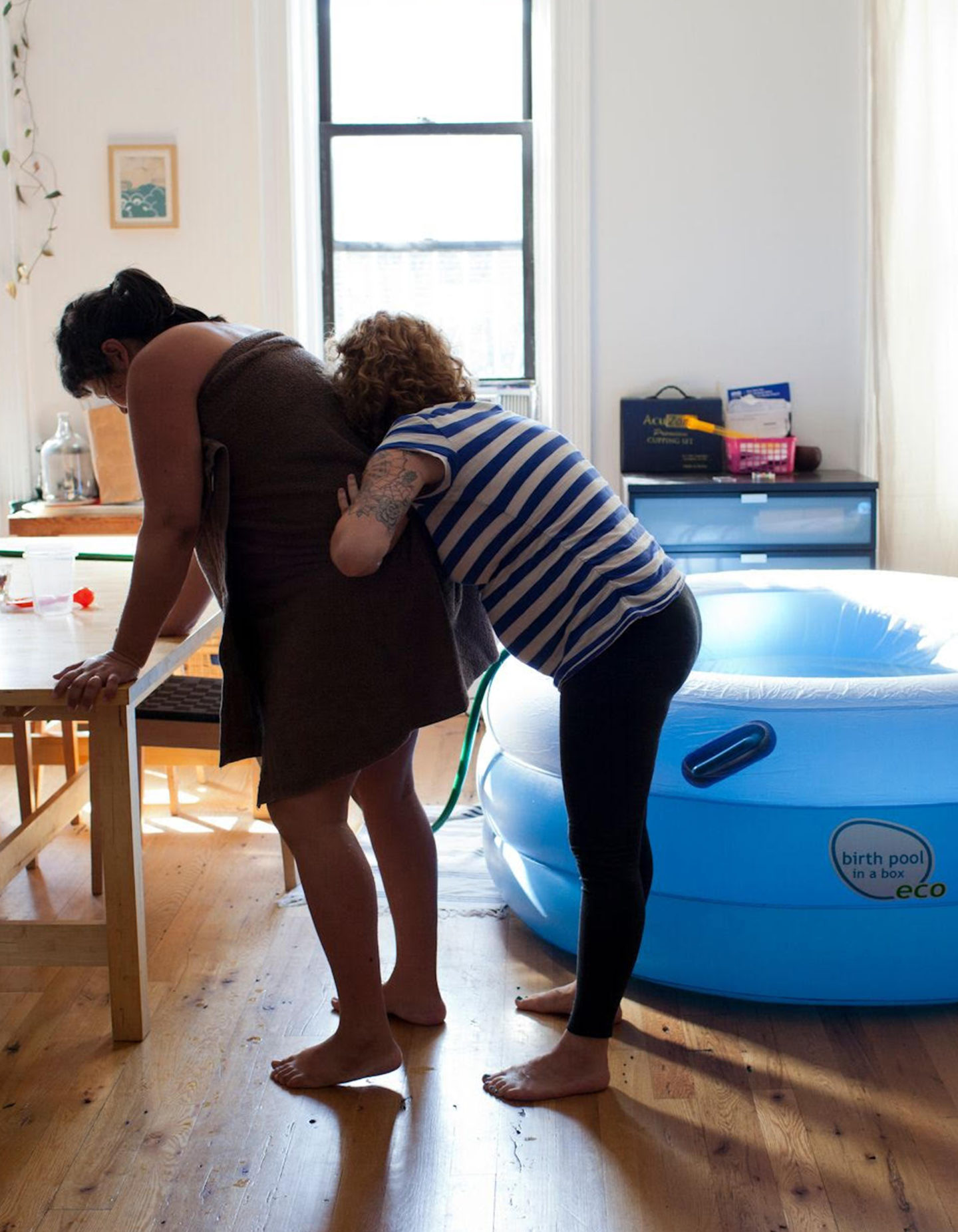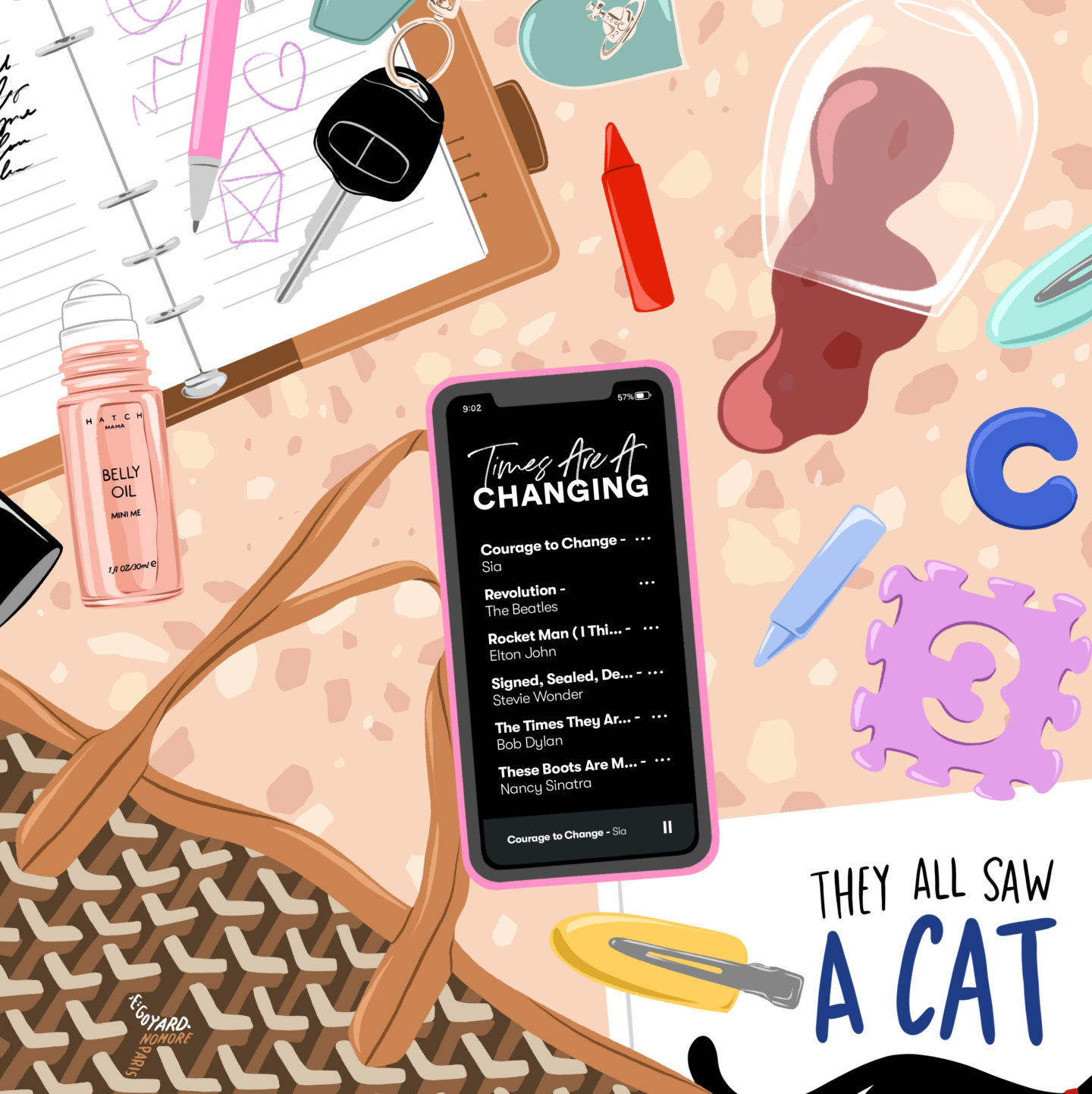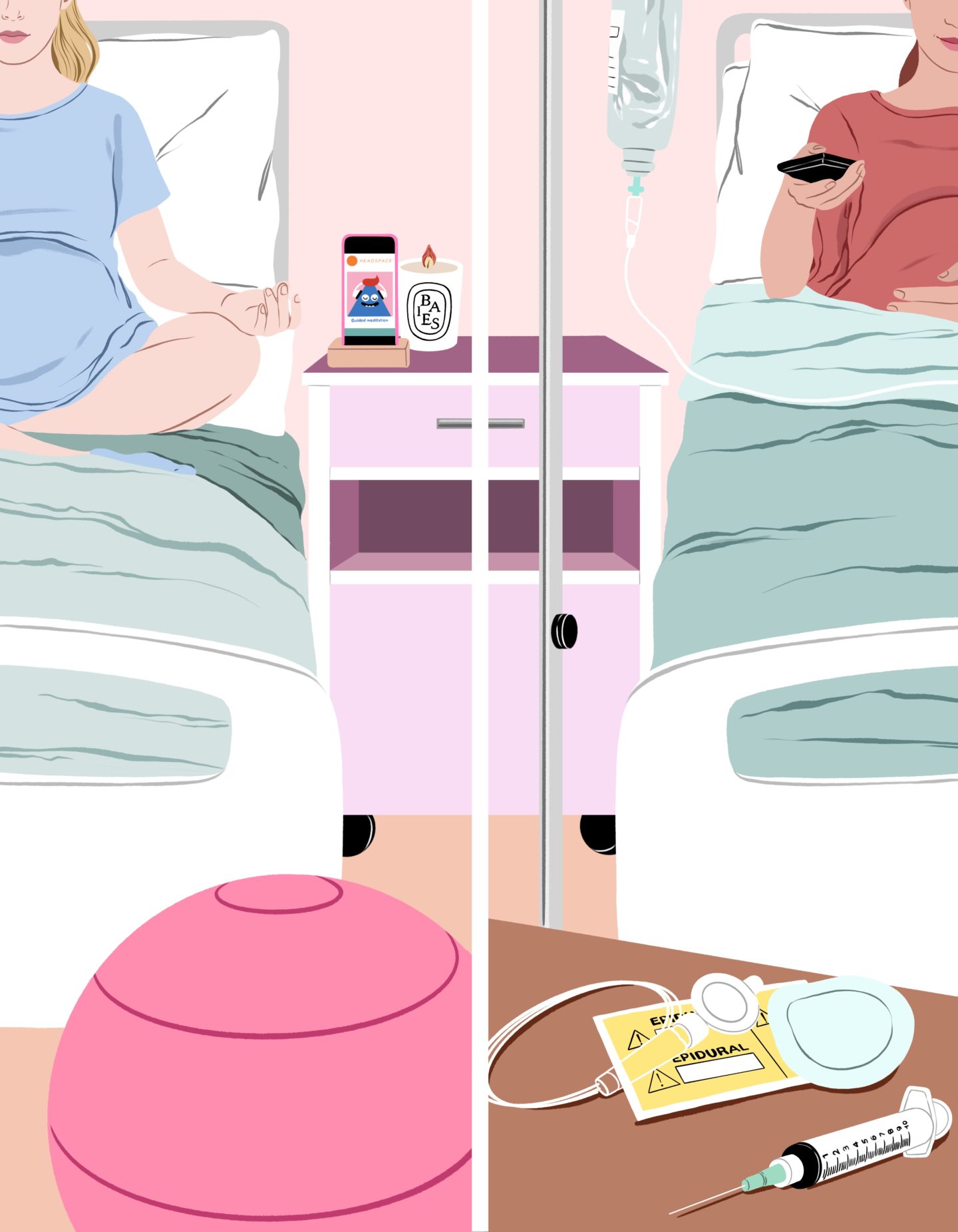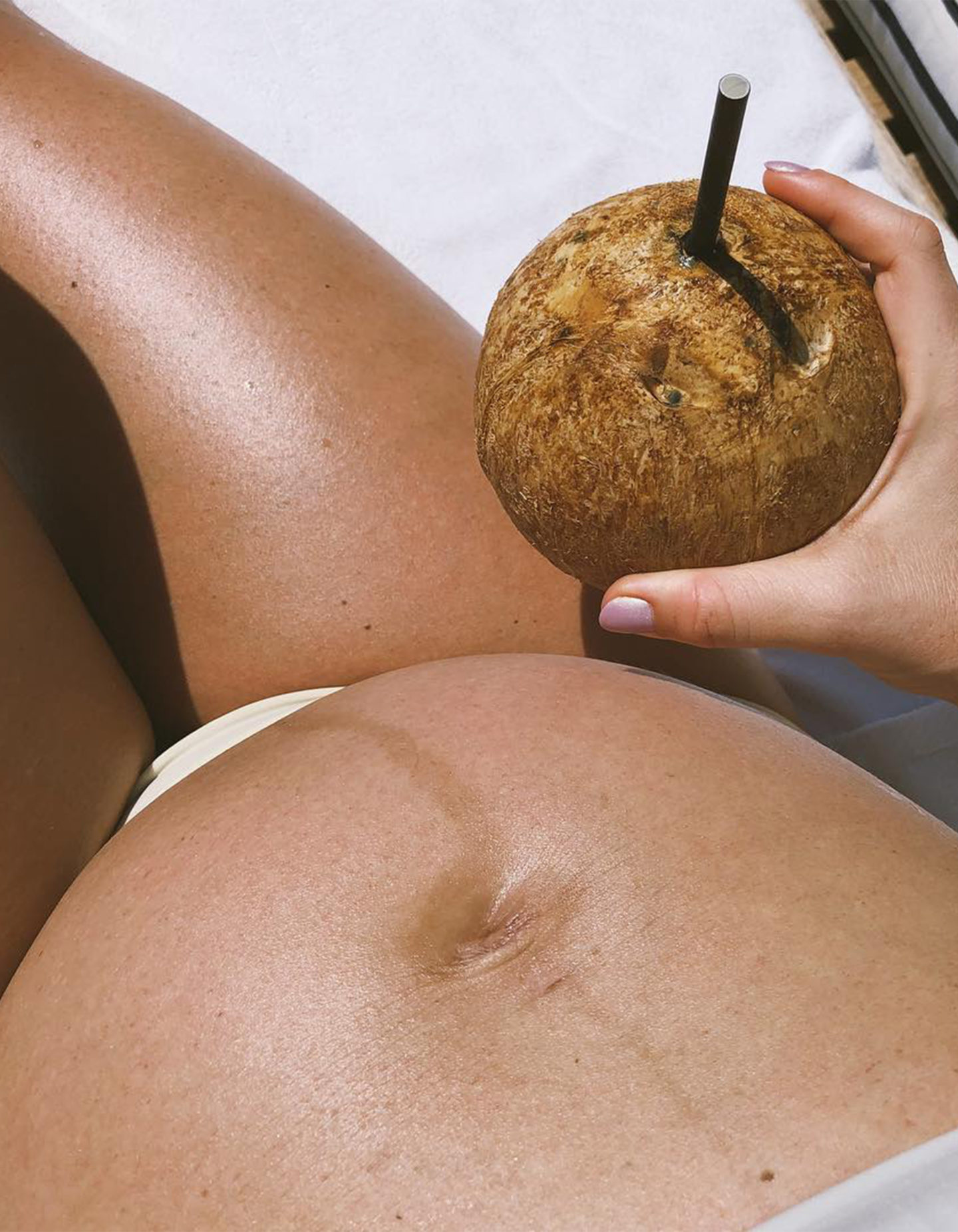New You. New Experiences.
Being pregnant means learning a whole bunch about a whole lot of things in your body that you never even knew existed. The esophageal sphincter? Experience a bit of heartburn during pregnancy, and you’ll become an expert on it. Don’t know what the linea nigra is? Get pregnant, and chances are this line will become as familiar as the back of your hand.
If you don’t know what the perineum is, let us introduce you (or just wait until your next appointment, and your Ob/Gyn will likely mention it then). The perineum is the span of tissue between your vagina and anus, and it turns out that massaging it during your final weeks of pregnancy can be incredibly useful. Like, preventing your rectum from ripping open useful.
If this is all completely foreign territory to you, don’t stress – you’ve come to exactly the right place. Keep reading for everything you need to know about perineal massage right here.
What Exactly Is a Perineum?
The perineum is the tissue in your genital area stretching between your vagina and anus, and it goes way more than skin deep. Your perineum is attached to your pelvic floor, AKA the muscles that hold your bowels and reproductive organs in place.
Perineal tears are always a risk during a vaginal birth, and keeping your perineum intact and healthy is key to a painless (as possible) postpartum recovery.
Okay, So What’s All This About Massages?
During labor and vaginal delivery, the perineum is prone to tearing. Even if the perineal tissue doesn’t tear, it’s possible your doctor may do an episiotomy, which is a surgical cut to help with the delivery process.
The good news? Perineal massage in the weeks leading up to your due date can help increase the elasticity of your perineum and reduce the risk of tearing or perineal trauma. This can help your baby’s head deliver slowly and safely while minimizing the risk of serious fourth-degree tears of your perineum.
Umm, sign us up!
Don’t just take our word for it. Antenatal perineal massage is a practice dating back centuries, and now there’s a strong body of systematic reviews and research to back it up. The benefits of perineal massage make sense: This super-important tissue needs to be both strong (it holds your body upright and supports the pelvic floor) and flexible.
Massage can help improve both of these things, and when done regularly in the last month or so before delivery, it’s been shown to reduce the chance of perineal damage during labor.
The benefits are clear, but how, exactly, is it done?
Buckle up. It’s time to get familiar with a new part of your body.
How To Massage Your Perineum for the First Time
Step One: Talk to Your Healthcare Team
Once you’re six weeks out from delivery, talk to your Ob/Gyn or midwife about when they recommend perineal massage. Once they give you the all-clear, you can incorporate this massage into your daily routine.
Do it for a few minutes at a clip. Just remember, easy does it, mama. Shoot for around five minutes per day, and if you miss a day or two, don’t fret — just pick it right back up tomorrow.
Now, clean your hands (obvs), and grab a mirror. It’s time to get to know the area.
Step Two: Wash Up and Get Comfy
For the second stage of the process, before beginning your massage, be sure to wash your hands. Then find a comfortable position to reach your perineum, such as with one leg up in the shower or sitting propped up in bed with your knees bent. If you find it too difficult or painful to reach around your baby bump, you can always ask your partner to help you.
Step Three: Grab a Bottle of Gel or Oil
Next, load up on massage gel — about a teaspoon should do it. Some people use all-natural oil like almond oil, olive oil, or coconut oil. However, stay away from water-soluble lube and anything with essential oils in it, as these can cause perineal pain or a vaginal infection in some cases.
If you run out of gel partway through your massage, don’t be afraid to grab more. The “right” amount of gel is completely up to you.
Step Four: Insert Your Fingers
Once you have clean hands and are ready, begin by inserting two fingers into your vaginal opening up to the first knuckle. You can use your thumbs or index fingers — whatever feels most comfortable. It might be handy to grab that mirror we mentioned earlier.
Step Four: Proceed Slowlfully and Mindfully
Resting your palms on the inside of your legs, begin stretching the area apart to the sides and then back towards your booty. Slowly add pressure, and practice holding the area stretched out in a U-shaped movement for up to two minutes at a time. The stretching sensation is normal.
In addition, you might feel a slight burning sensation at first, but over time, you should be able to stretch out the tissue further and further without any discomfort.
Lastly, if you have any questions or concerns about perineal massage in pregnancy, don’t hesitate to reach out to your Ob/Gyn or another healthcare provider.
A Quick Summary
As you progress into the last few weeks of your pregnancy, you may want to start massaging your perineum, aka the region around your vagina, to help stretch it out. Basically, the goal is to loosen and stretch your vagina in advance of giving birth.
Sensual, right?
Doing this kind of daily massage could lead to less tearing and a need for an episiotomy. We advise taking a warm bath first to loosen everything up, and gently lubricate your fingers, thumbs, and perineal area with vitamin E oil or any kind of pure, all-natural oil (not baby oil or vaseline/Aquaphor).
Place your thumbs at about the first knuckle into your vagina and start pressing down towards your butt and stretching them into the sides. Keep stretching the area until you feel a bit of pressure, and hold for two minutes.
Third Trimester Care
Regular perineal massage isn’t the only thing you can do to prepare for baby during the third trimester. Self-care is extra important during this time. Your body is (literally) stretched out to the max, making way for your little one, and it’s likely you may find yourself both exhausted and unable to sleep in the weeks leading up to delivery.
So why not extend that massage further? Try lightly massaging mama-safe belly oil into your tummy or asking your partner for a foot massage. Or try getting some gentle stretching in with a prenatal yoga class and practicing Kegels to strengthen your pelvic floor and minimize stretching during delivery.
And, of course, now is the time to make sure you’re completely prepared for your due date – do you have a hospital plan ready? Is your hospital bag packed? (That part, at least, can be easy, thanks to our thoughtfully-designed Hatch to Hospital Bundle.)
It’s okay if the nursery isn’t completely ready. Grabbing the essentials like a bassinet or crib, baby carrier, and baby bottles and formula if you choose not to breastfeed.
Last but not least, remember to take a deep breath — you got this! The weeks leading up to delivery can be a crazy blend of excitement, nerves, exhaustion, and joy, and all of those feelings are completely normal.
You might never FEEL 100% prepared for baby, but that doesn’t mean you aren’t ready. We believe in you! We’re here to answer your questions, from “Where is the perineum” to “What to wear to my baby shower?” from before your baby hatches and after.
Sources:
How to Do Perineal Massage: Oils to Use, Benefits, More | Healthline
Perineal massage during pregnancy | HSE Health
Perineal prevention and protection in obstetrics: CNGOF clinical practice guidelines | NCBI
Traditional practices during pregnancy and childbirth among mothers in Shey Bench District, South West Ethiopia | Sage Journals








